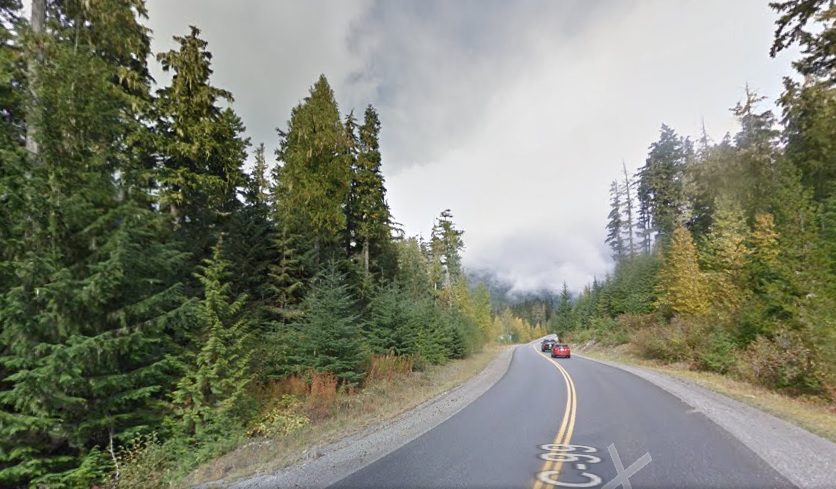Cyclist to blame for his own death near Whistler in May: British Columbia insurance authorities
On May 31, as Canadian Cycling Magazine reported last summer, two prominent Whistler, B.C.-based cyclists -- Ross Chafe and Kelly Blunden -- were killed as they descended from the Whistler ski resort, after a vehicle crossed the centre line and hit both of them.


On May 31, as Canadian Cycling Magazine reported last summer, two prominent Whistler, B.C.-based cyclists — Ross Chafe and Kelly Blunden — were killed as they descended from the Whistler ski resort, after a vehicle crossed the centre line and hit both of them. Chafe and Blunden were riding down the steep, fast hill, heading south. The driver, Samuel Alec, was traveling north when he struck the two members of the Whistler Cycling Club, killing a passenger in his own vehicle in the process.
Accordingly, Alec was charged with criminal negligence causing death, impaired driving causing death, and driving under the influence, to the tune of three counts each for every victim of the incident. And not only was Alec under the influence at that time, but at other times, too. A repeat offender, his rap sheet included several similar convictions.
Nonetheless, ICBC — the Insurance Corporation of British Columbia, a provincial Crown corporation and B.C.’s auto insurer — has claimed that Chafe, specifically, was responsible for his own death, the National Post reports.
Chafe, of course, was no stranger to either cycling or the road that saw him killed. 52 years old at the time of his death, Chafe was a former member of Canada’s national cycling team, a three-time world championship contender, and had competed at the Pan Am Games and the Commonwealth Games as well. Beyond a reputation among Whistler cyclists that bordered on legendary, citing the rider’s incredible climbing skill, Chafe had established himself as a pillar in the Canadian cycling community at large. In short, he was certainly not new to the saddle.
According to the Post, though, ICBC’s legal argument presented Chafe as anything but.
The insurance corporation’s involvement in the case, apparently, stems from a lawsuit filed by Chafe’s widow, seeking compensation for damages against herself and the couple’s children. Those damages include the loss of “guidance, support, household assistance and inheritance,” and also include damages related to funeral and memorial service costs, reports say. Though the ICBC wasn’t named in the suit at first, it later weighed in as a third party.
In that capacity, the ICBC argued that Chafe was impaired himself at the time of his death, suggesting he was influenced by “alcohol, drugs, fatigue, illness or any combination thereof,” according to the Post’s report. Later, the corporation backtracked. Suddenly it wasn’t a matter of intoxication that put Chafe at blame for his own death, but negligence. Chafe — “an elite rider on a custom-fitted bike,” to quote reports — may have been riding a bike with faulty brakes, or wasn’t cycling far enough towards the shoulder of the road. In short, ICBC argued, he “didn’t do enough to avoid getting himself killed by an alleged drunk driver,” to quote the Post’s article.
“He failed to take reasonable or proper or any precaution to avoid the accident,” the ICBC argued. “He failed to give any or adequate warning when the accident was, or should have appeared, imminent.”
The ICBC’s accusations, said Whistler Cycling Club vice-president Gary Baker, are “appalling.”
“How could Ross be at fault here?” he asked. “Whoever is making these arguments has obviously never ridden a bike before. How can Ross be at fault for being on his own side of the road when he was killed? Both the guys that got killed that day, Ross — and Kelly — were very safety conscious.” Describing Chafe’s prowess as “phenomenal,” the former national champion, Baker said, was anything but the sort of cyclist who would make careless mistakes on a precipitous mountain descent. He was barely even the sort of rider to boast about his achievements. Chafe, he said, had other priorities.
“These weren’t two yahoos bumbling their way down a mountainside,” Baker added. “These were family men.”
The case is still ongoing.
UPDATE (Oct. 30, 2015): ICBC offered the following statement to Canadian Cycling Magazine regarding the matter:
“This was, of course, a very tragic incident.
To be clear, ICBC is not accusing the cyclist(s) of anything. The third party notice is to flag any possible issues that should be explored as the court process moves ahead.
Our intentions are in no way to deny a fair settlement to any deserving party. This is very much part of the standard legal process called the pleadings process. During that time, the defense must lay out any potential scenario which may have occurred so it can be considered as part of the legal process. This must be done at the start of this process in order for all issues to be properly considered.
The reason we enter into cases like this, as a third party, is to ensure there is a fulsome defense given so that any settlement given is a fair one. This manages the cost of insurance to all customers. When there is enough evidence or a conviction, we can then look to recover that money if the driver who hit the cyclists was impaired.”
